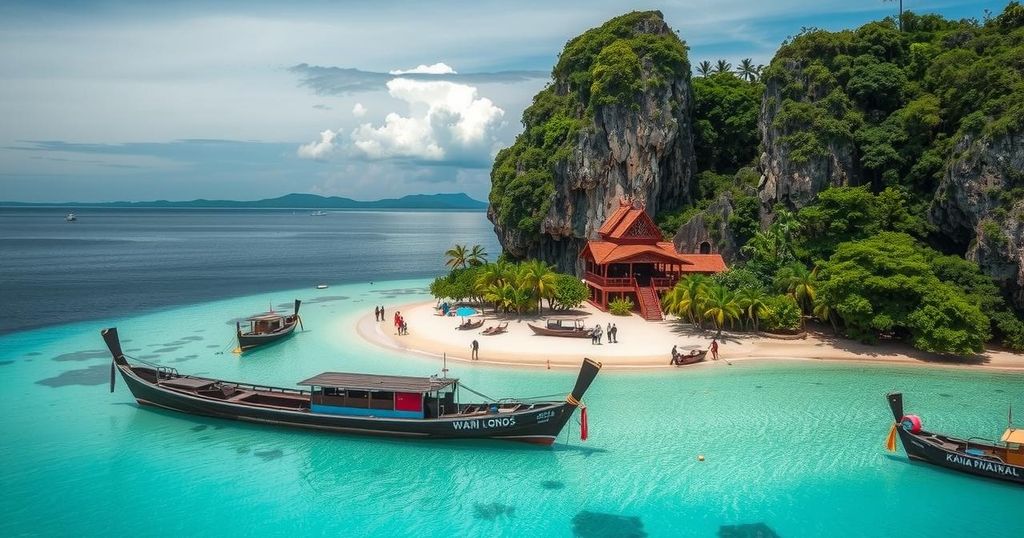The dispute over Koh Kood island between Thailand and Cambodia centers around the island’s potential oil and gas reserves. Historical grievances trace back to colonial treaties, with Cambodia claiming that parts of the island belong to them. Rising energy demands and political ties complicate the relationship as both nations navigate nationalistic sentiments and territorial claims.
Koh Kood, Thailand’s fourth-largest island, attracts hundreds of thousands of tourists annually, yet it is currently embroiled in a significant international dispute due to its believed deposits of gas and oil. This escalating conflict is underscored by historical claims originating from Cambodia that date back to the early 20th century. The political climate, marked by the evolving demands for energy, has brought the previously dormant territorial issue to the forefront, complicating the relationship between Thailand and Cambodia.
The dispute over Koh Kood island is deeply rooted in colonial history, specifically tracing back to the early 1900s when France administered a vast region of Indochina, including present-day Cambodia. A pivotal 1904 agreement ceded Koh Kood to Thailand, a situation further complicated by a subsequent treaty in 1907 that settled the maritime boundaries. Cambodia’s claim to a portion of the island emerged during the 1970s as it contested the maritime delineations set forth in these treaties. The dynamic intensified with Thailand’s government expressing willingness for profit-sharing discussions over the island’s resources, raising nationalist sentiments in both nations.
The ongoing territorial conflict regarding Koh Kood island exemplifies the complexity of sovereignty issues in Southeast Asia, scrutinized through a contemporary lens of energy needs and historical grievances. While both nations are seeking to enhance their energy security amidst rising demand, the unresolved nature of the sovereignty question presents significant diplomatic challenges. It remains to be seen whether the ongoing talks will yield a resolution that satisfies both parties or lead to further discord.
Original Source: www.dw.com






